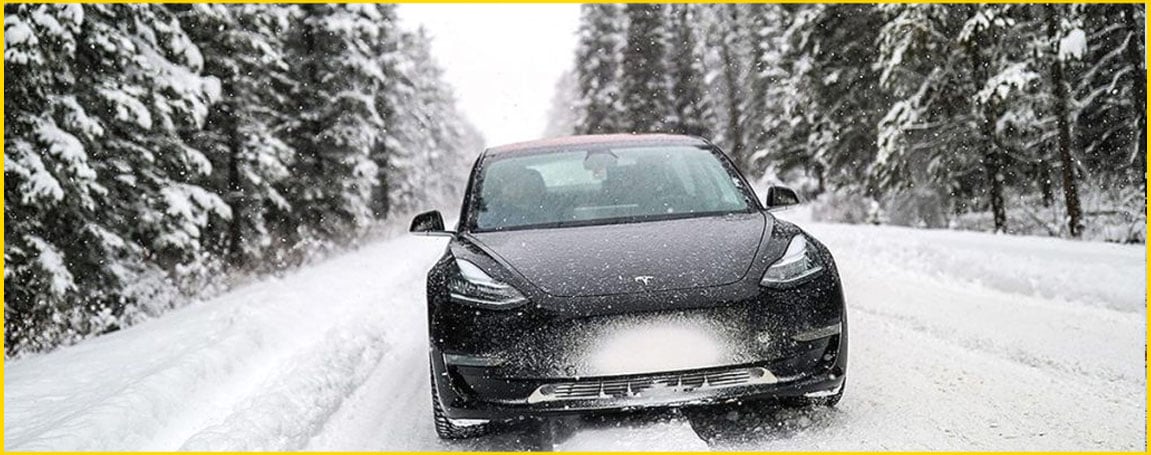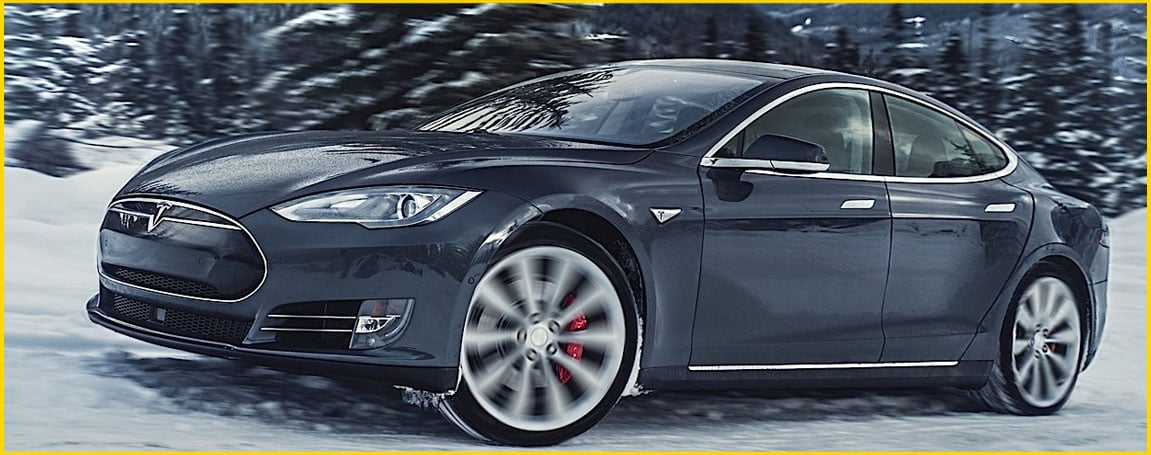How far can you drive with an electric vehicle in the winter
How far can you drive with an electric vehicle in the winter
Posted on April 24, 2022
Every Canadian has heard the words, "My car won't start. The battery has been flattened by the cold." This statement has led to the myth that EV vehicles in winter are a no-go for most Canadians.
We understand sub-zero temperatures' effect on internal combustion engine (ICE) vehicles, but how do these temperatures affect EVs?
EV Inventory
Hybrid Vehicle Inventory
Get Pre-Approved!
How Do EV Vehicles Respond to the Cold?

Most EVs are fitted with a lead-acid battery similar to an ICE vehicle. The difference here is that the EV only uses its battery to start up some electronics, while the ICE vehicle's battery is trying to move frozen pistons and oil that has porridge consistency.
A weak battery in an EV will still start the car, but it has no hope of cranking those frozen pistons into life in an ICE vehicle.
Icy weather does not only have an impact when starting the car. Research has proven that an ICE vehicle will have poorer fuel figures when the mercury drops below freezing as it does when the weather is warm. Urban driving will return an increase of anywhere between 10% and 20% in fuel consumption in icy weather.
EVs do have a noticeable drop in efficiency in cold weather. In an ICE vehicle, the heat generated in the engine is used to warm the cabin, but in an EV, generating heat to warm the cab will use battery power if no heat pump is installed. This depletes the available battery capacity.
So How Long Will My EV Run?

Unfortunately, there is no simple answer to this question.
The Norwegian Automobile Federation (NAF) tested 20 EVs in March 2020 to see how long the vehicles ran before stopping completely.
Their research concluded that, on average, EVs would lose 20% of their range in winter and charge more slowly. The top performer on the test lost 10% of its theoretical range, and the worst was around 30%.
The one common factor among all the better performers was that they all had a heat pump installed to warm the cabin.
To Extend Your Range in Winter

Now that we understand that it is inevitable that your EV will lose some of its range in winter, what can you do to mitigate this?
If your vehicle has a heat pump installed, you are already off to a winning start. If there is no heat pump in your car, use the vehicle's pre-warming facilities to ensure that the vehicle's cabin is warmed before you set off on your trip.
Try to drive more smoothly, with no sudden acceleration. Smooth acceleration uses less energy, extending the range of the vehicle.
Wrap Up

Ensure you understand your vehicle's response to winter weather, and remember that it will not charge as fast in cold weather.
EVs do not suddenly stop in cold weather. They will give the driver plenty of notice that their energy stocks are being depleted, so take note of your vehicle's information panel in cold weather.
There is no reason to fear having an EV in winter in Canada. We have a great deal of experience with EV vehicles in Regina and can advise you on the best winter EV vehicles for Canadian conditions.
